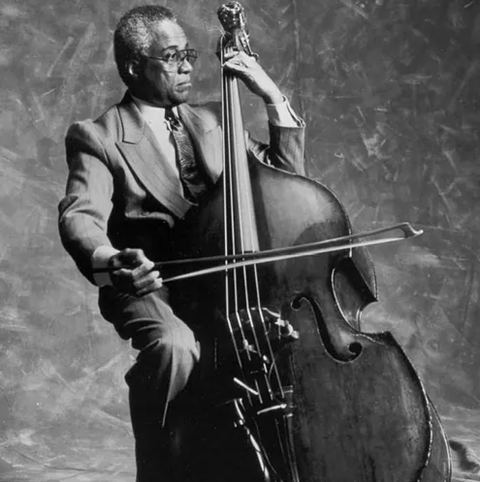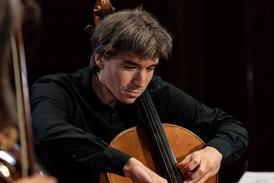The American musician was also a highly regarded pedagogue at the University of Wisconsin-Madison

Read more news stories here
US double bassist Richard Davis died on 6 September at the age of 93. As well as being an inspirational jazz bassist, he was a well-regarded pedagogue and social justice activist. In 2016 he retired as professor of bass, jazz history and jazz ensemble at the University of Wisconsin-Madison, where he had spent almost four decades.
Born in 1930 in Chicago, Davis began studying the double bass in school with his teacher Walter Dyett. He then attended VanderCook College of Music while studying with Rudolf Fahsbender of the Chicago Symphony Orchestra. After college he performed in dance bands, until in 1954 he moved to New York with pianist Don Shirley. He then performed with the Sauter-Finegan Orchestra and became part of Sarah Vaughan’s rhythm section from 1957 to 1960.
Davis spent more than 20 years on the New York jazz and studio scene as one of the world’s premier bassists. The Downbeat International Critics Poll named him Best Bassist from 1967 to 1974. He recorded a dozen albums as a leader and 3,000 recordings and jingles as a sideman. His performance and recording credits include work with Eric Dolphy, Don Sebesky, Oliver Nelson, Bruce Springsteen, Van Morrison, Frank Sinatra, Barbra Streisand, Miles Davis, Thad Jones/Mel Lewis Band, Dexter Gordon and Ahmad Jamal.
Read: Double bassist Richard Davis receives NEA Jazz Masters Fellowship
As a classical musician, Richard played under conductors such as George Szell, Leopold Stokowski, Igor Stravinsky, Pierre Boulez, Gunther Schuller and Leonard Bernstein. He moved to Wisconsin in 1977 where he taught for 39 years. Among his students were William Parker, David Ephross, Sandor Ostlund, Hans Sturm, Alex Kalfayan, Ryan Maxwell and Karl E. H. Seigfried.
In 1993 Davis founded the Richard Davis Foundation for Young Bassists, Inc., which holds annual masterclasses for bassists aged 3 to 18. In 1998 he created the Retention Action Project, which focuses on open dialogues on subjects related to multicultural differences. Among his many honours he received the Martin Luther King, Jr. Humanitarian Award, the Rev. James C. Wright Human Rights Award, the UW-Madison Exceptional Service Award, the Spencer Tracy Award for Distinction in the Performing Arts, and the NEA Jazz Masters Fellowship.
Read more news stories here
The number one source for playing and teaching books, guides, CDs, calendars and back issues of the magazine.
In The Best of Technique you’ll discover the top playing tips of the world’s leading string players and teachers. It’s packed full of exercises for students, plus examples from the standard repertoire to show you how to integrate the technique into your playing.
The Strad’s Masterclass series brings together the finest string players with some of the greatest string works ever written. Always one of our most popular sections, Masterclass has been an invaluable aid to aspiring soloists, chamber musicians and string teachers since the 1990s.
American collector David L. Fulton amassed one of the 20th century’s finest collections of stringed instruments. This year’s calendar pays tribute to some of these priceless treasures, including Yehudi Menuhin’s celebrated ‘Lord Wilton’ Guarneri, the Carlo Bergonzi once played by Fritz Kreisler, and four instruments by Antonio Stradivari.






































No comments yet